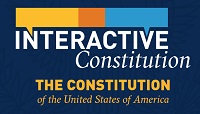Over the past few months, President Trump has announced new tariffs on imported goods from solar panels and washing machines to steel and aluminum. He has also taken swift executive action to block international mergers that he has deemed harmful to U.S. interests from occurring, and has even said he would consider withdrawing from NAFTA and related trade agreements. President Trump’s protectionist policies are a reversal of mostly free-trade orientated policies of past administrations, and his actions raise important constitutional questions about the extent of executive power over trade policy, separation of powers and the non-delegation doctrine, as well as the future of U.S. and global trade.
FULL PODCAST
PARTICIPANTS
 Steve Charnovitz is Associate Professor of Law at George Washington University Law School. He is a member of both the Council on Foreign Relations and the American Law Institute, and the author of many publications including The Path of World Trade Law in the 21st Century.
Steve Charnovitz is Associate Professor of Law at George Washington University Law School. He is a member of both the Council on Foreign Relations and the American Law Institute, and the author of many publications including The Path of World Trade Law in the 21st Century.
 Timothy Meyer is a Professor of Law at Vanderbilt Law School. He is an expert in public international law, with an emphasis on international economic and energy law. He previously worked as a Legal Advisor for the Department of State, and clerked for now-Justice Neil Gorsuch while he was on the 10th Circuit.
Timothy Meyer is a Professor of Law at Vanderbilt Law School. He is an expert in public international law, with an emphasis on international economic and energy law. He previously worked as a Legal Advisor for the Department of State, and clerked for now-Justice Neil Gorsuch while he was on the 10th Circuit.
 Jeffrey Rosen is the President and Chief Executive Officer of the National Constitution Center, the only institution in America chartered by Congress “to disseminate information about the United States Constitution on a nonpartisan basis.” He is also a professor at The George Washington University Law School, and a contributing editor for The Atlantic.
Jeffrey Rosen is the President and Chief Executive Officer of the National Constitution Center, the only institution in America chartered by Congress “to disseminate information about the United States Constitution on a nonpartisan basis.” He is also a professor at The George Washington University Law School, and a contributing editor for The Atlantic.
Related Decisions and Documents
- Presidential Proclamation on Adjusting Imports of Steel into the United States, March 8, 2018
- Smoot-Hawley Tariff Act of 1930 (19 U.S.C. §4)
- Section 232 of the Trade Expansion Act of 1962 (19 U.S.C. §1862)
- Trade Act of 1974 (19 U.S.C. Chapter 12)
- NAFTA Implementation Act, H.R.3450 - 103rd Congress (1993-1994)
- J. W. Hampton, Jr. & Co. v. United States (1928)
- FEA v. Algonquin SNG, Inc. (1976)
- Gundy v. United States, granted by U.S. Supreme Court March 8, 2018
Additional Resources
 Our Interactive Constitution is the leading digital resource about the debates and text behind the greatest vision of human freedom in history, the U.S. Constitution. Here, scholars from across the legal and philosophical spectrum interact with each other to explore the meaning of each provision of our founding document.
Our Interactive Constitution is the leading digital resource about the debates and text behind the greatest vision of human freedom in history, the U.S. Constitution. Here, scholars from across the legal and philosophical spectrum interact with each other to explore the meaning of each provision of our founding document.
Common Interpretations
Article I, Section 1: General Principles by William N. Eskridge, Jr. and Neomi Rao
Article I, Section 7 by Nicholas Bagley and Thomas A. Smith
The Taxing Clause by Neil S. Siegel and Steven J. Willis
The Sixteenth Amendment by Joseph R. Fishkin, William E. Forbath, and Erik M. Jensen
Stay Connected and Learn More
Continue today’s conversation on Facebook and Twitter using @ConstitutionCtr.
Sign up to receive Constitution Weekly, our email roundup of constitutional news and debate, at bit.ly/constitutionweekly.
Please subscribe to We the People and our companion podcast, Live at America’s Town Hall, on iTunes, Stitcher, or your favorite podcast app.
We the People is a member of Slate’s Panoply network. Check out the full roster of podcasts at Panoply.fm.
The Constitution Center is offering CLE credits for select America’s Town Hall programs! Click here to learn more.
And finally, despite our congressional charter, the National Constitution Center is a private nonprofit; we receive little government support, and we rely on the generosity of people around the country who are inspired by our nonpartisan mission of constitutional debate and education. Please consider becoming a member to support our work, including this podcast.
Questions or comments? We would love to hear from you. Contact the We the People team at [email protected]








